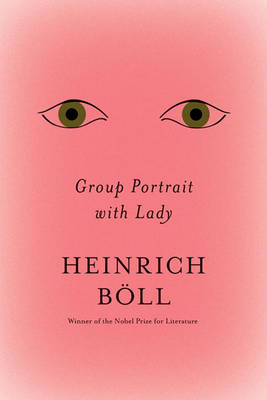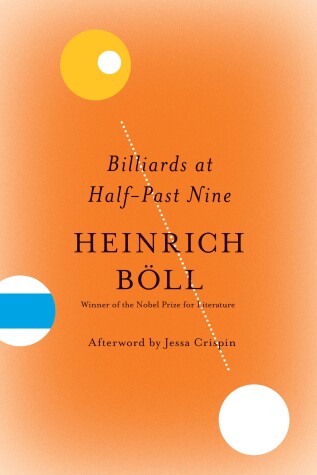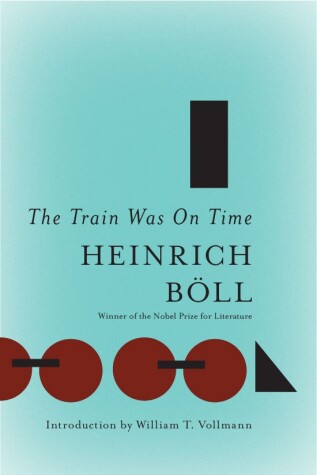Essential Heinrich Boll
6 total works
In this portrait of Ireland, seen through the eyes of a novelist and a stranger, Heinrich Boell offers an evocation of the lilt of the voices, the laughter of the children, the smell of the wet earth, and the warm, heady friendliness of the pubs. Travelling with his wife and children, Boell struggles with the intricacies of foreign exchange, eavesdrops on conversations aboard a steamer, and tramps through rain-soaked peat. One of Germany most prolific post-war writers, Boell was a winner of the Nobel Prize for Literature. He died in 1985.
From Nobel Prize winner Heinrich Boll, an inventive and sardonic portrayal of the effects of the Nazi period on a group of "ordinary" peopleWeaving together the stories of a diverse array of characters, Boll explores the often bizarre and always very human courses chosen by people attempting to survive in a world marked by political madness, absurdity, and destruction. At the center of his tale is Leni Pfeiffer, a German woman whose secret romance with a Soviet prisoner of war both sustains and threatens her life. As the narrator "interviews" those who knew Pfeiffer, their stories come together in a dazling mosaic, rich in satire, yet hinting at the promise of a saner world.
Böll’s well-known opposition to fascism and war informs this moving story of a single day in the life of traumatized soldier Robert Faehmel, scion of a family of successful Cologne architects, as he struggles to return to ordinary life after the Second World War. An encounter with a war-time nemesis, now a power in the reconstruction of Germany, forces him to confront private memories and the wounds of Germany’s defeat in the two World Wars.
Heinrich Böll’s taut and haunting first novel tells the story of twenty-four-year-old Private Andreas as he journeys on a troop train across the German countryside to the Eastern front. Trapped, he knows that Hitler has already lost the war ... yet he is suddenly galvanized by the thought that he is on the way to his death.
As the train hurtles on, he riffs through prayers and memories, talks with other soldiers about what they’ve been through, and gazes desperately out the window at his country racing away. With mounting suspense, Andreas is gripped by one thought over all: Is there a way to defy his fate?
As the train hurtles on, he riffs through prayers and memories, talks with other soldiers about what they’ve been through, and gazes desperately out the window at his country racing away. With mounting suspense, Andreas is gripped by one thought over all: Is there a way to defy his fate?
Acclaimed entertainer Hans Schneir collapses when his beloved Marie leaves him because he won’t marry her within the Catholic Church. The desertion triggers a searing re-examination of his life—the loss of his sister during the war, the demands of his millionaire father and the hypocrisies of his mother, who first fought to “save” Germany from the Jews, then worked for “reconciliation”
afterwards.
Heinrich Böll’s gripping consideration of how to overcome guilt and live up to idealism—how to find something to believe in—gives stirring evidence of why he was such an unwelcome presence in post-War German consciousness . . . and why he was such a necessary one.
afterwards.
Heinrich Böll’s gripping consideration of how to overcome guilt and live up to idealism—how to find something to believe in—gives stirring evidence of why he was such an unwelcome presence in post-War German consciousness . . . and why he was such a necessary one.



